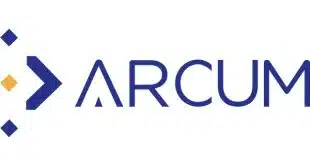The U.S. Department of Justice announced late Friday it is filing cases against several fraud rings that use so-called microtransactions to mask their fraudulent activity from victims and card issuers.
The lawsuits are being brought as part of efforts by the Justice Department’s Consumer Protection Branch to stop criminals that use misrepresentations or unauthorized charges to steal money from consumers’ financial accounts.
Microtransaction scams involve the use of low-dollar transactions made with stolen credit or debit cards. By mixing in fraudulent microtransactions—which often go unnoticed by the cardholder or are automatically reimbursed by card issuers if disputed—with fraudulent transactions that have higher dollar values, criminals can lower the percentage of fraudulent transactions that get flagged as a chargeback.

To determine fraudulent chargeback rates, the card networks take the number of transactions with a chargeback and divide that figure by the total number of transactions for the merchant.
“Since micro-charges are never charged back, it has the effect of increasing the denominator (total number of transactions) without increasing the numerator (the number of chargebacks or number of fraudulent chargebacks),” David Mattei, a strategic advisor in the fraud and anti-money laundering practice at Datos Insights, says by email. “This way the merchant associated with the fake credit/debit card transactions would stay off the radar of the card brands’ chargeback-monitoring programs.”
One of the cases brought by the Justice Department was filed Dec. 11 in the U.S. District Court of Florida and alleges that a network of criminals based in Florida and Quebec, Canada, stole millions of dollars from consumers and small businesses by making recurring unauthorized charges against the victims’ bank accounts using bogus merchants.
To make the unauthorized charges appear legitimate, the fraud ring portrayed the sham merchant as a legitimate business through such tactics as creating Web sites for the companies, generating fake customer authorizations for the charges, and setting up a customer-service call center to field complaints and offer refunds, which consumer never received, according to the Justice Department.
To reduce the chargeback rate for the sham merchant, the Justice Department alleges the fraud ring created numerous microtransactions so that banks would not detect large numbers of chargebacks for unauthorized debits, says the Justice Department.
“Since these are bogus companies, they would receive a high rate of chargebacks. The card brands monitor merchants’ chargeback rates on a regular basis and have formal programs in place to monitor and fine merchants with high chargeback rates,” Mattei says. “There is one program for excessive chargebacks and one program for excessive fraudulent chargebacks. The card brands monitor merchants closely on both of these areas and will fine and potentially suspend the merchant if they do not get their chargeback rates under control.”
Another case brought by the Justice Department and filed in the U.S. District Court for the Eastern District of California Dec. 12 alleges that a criminal enterprise used several businesses it operated to process payments for other criminal organizations that made unauthorized charges to consumers’ accounts, as well as engaged in a variety of other illegal activities, including technical support scams.
The Justice Department also charges that the defendants used sham microtransactions to reduce the rate of chargebacks. The court subsequently entered a temporary restraining order to prevent the defendants from continuing to operate the scheme while awaiting trial.
The actions taken by the Justice Department in these instances appear to be a first for the law-enforcement agency. “It’s the first that I have heard of the DOJ doing this, but I applaud them for taking down these criminals,” says Mattei. “Any efforts to rid the payment ecosystem of fraudsters is welcome news to those who play fairly.”






